
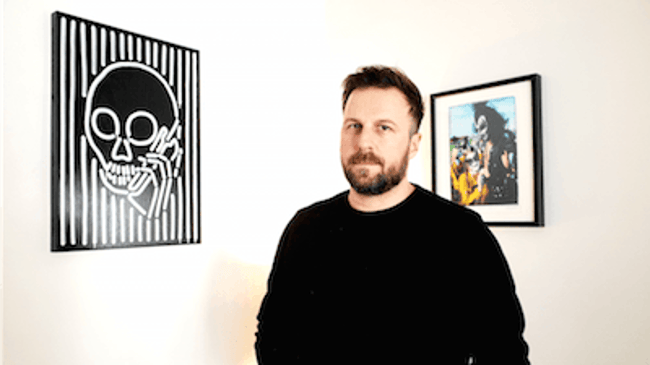
A day in the life of Jérôme Riera
Photos Boris Laplante
Words Martin Lacroix
Share the article on
The musician and consultant talks big data, being sober on tour, and hair dyeing.
Jérôme Riera is a brand communication consultant who specialises in music synchronisation. He founded an agency called Headz, and in a past life was the guitar player for French rock band Vegastar, made famous by their “100ème étage” song and their passion for unreasonable haircuts. We sat down with him in his new hometown of Lyon to talk data, David Guetta, and hair dyeing.
You founded Headz, a big data-driven entertainment consulting agency. What exactly does such an agency do?
Headz brings the entertainment industry in its broadest sense, i.e., the sport, music, fashion, cinema, video game, and celebrity industries, together with brands to build content other than simple, classic advertising. We look for, and create content which can bridge the gap between both worlds, using data as often as possible; in other words, by analysing conversations on social networks. We look at what people comment on, what they talk about, how they talk about it, and use the data extracted from these analyses. In short, if X million people talk about a brand, we try to figure out their common cultural ID card. It’s a more horizontal analysis, as opposed to simply looking at the amount of likes and followers a brand or artist might have.
You set foot in the communication industry through music, which is rather unconventional.
I’ve been a musician my entire life. At first it was only semi-professional, and then it turned into a full-time job. I played with various bands, and most notably with one called Vegastar. We lived off our royalties and concert tickets, we toured, and our songs were played on the radio and TV. Life was easy, and it was my main occupation. With Vegastar we already worked with some brands with which we had seeding and sponsoring contracts, as well as some press offices… I realised that - at that time - no one had thought of professionally bringing together brands and the music industry with an artistic and sales-oriented approach.
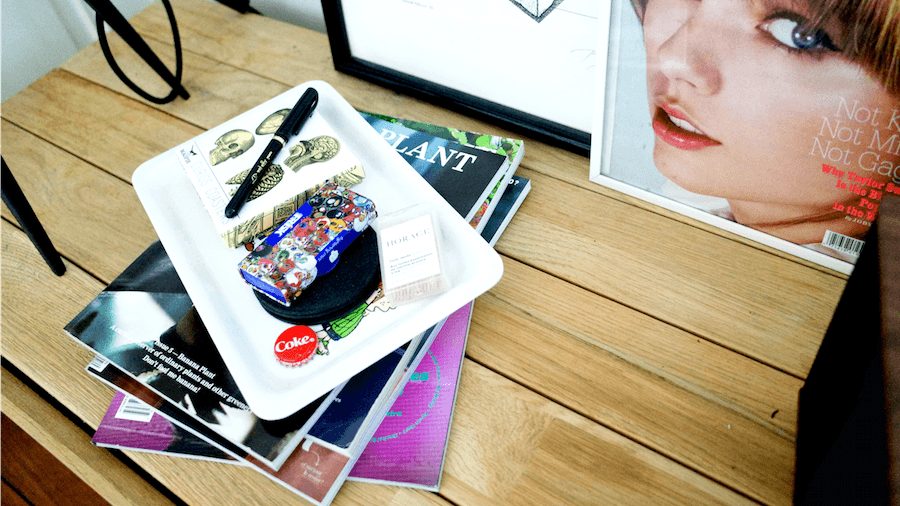
Hence your decision to give it a shot.
I offered my services to all and any agency I could think of. I must have sent out 200 emails, none of which actually got an answer. Funny story: I even met a very famous person from a world-renowned agency, before Facebook and the social media era. When I explained that I wanted to get brands to work with music bands to create content on the Internet his reply was: “what for”? There was general obliviousness back then, as to the power and reach of these collaborations. Nowadays, it’s pretty much all brands do; getting people from the entertainment industry to communicate via digital platforms. Nobody gives a shit about classic, run-of-the-mill advertising anymore!
How did you end up making it work?
As nobody was interested in what I had to offer, I started a blog called New Wave Hooker where I’d talk about music. Someone from the Duke agency took interest in the blog, and because he knew I was trying to set foot in the industry, found a position for me in the agency. So I worked for Duke on a digital-only position. Then I moved on to Publicis. These were the early days of Brand Content. I was hired by their brand content-dedicated agency called Moxie. With Moxie I got the opportunity to work on massive campaigns such as the one involving David Guetta for the Renault Twizzy for example, and I got to learn a lot as all areas of advertising - an industry I had no background in - were concerned. After that, I moved on to Havas where I also got to do plenty of cool things.
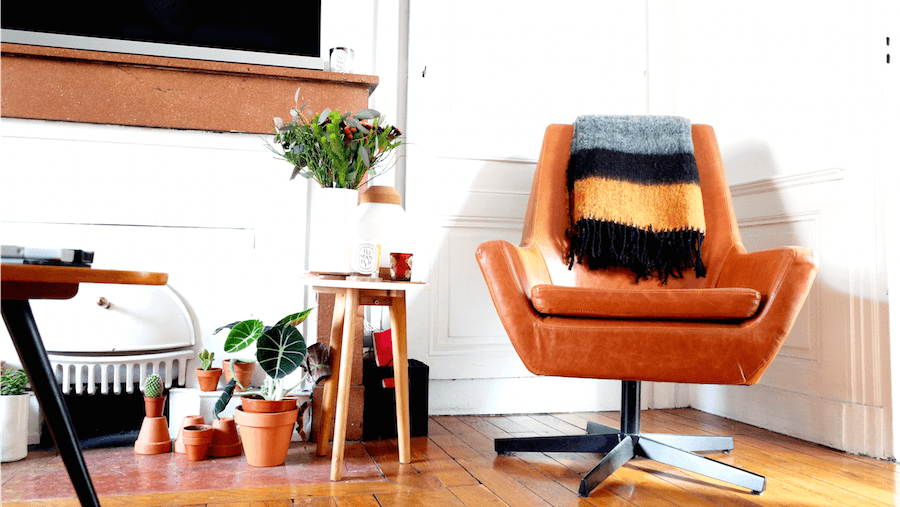
Vegastar was all about hair styles and colours experimentation, right?
Yes. Vegastar was more about the hair than the music. Our philosophy was that two hair colours were always better than one. And if you managed to squeeze in bangs, a faux hawk, and mullet all at the same time, you were at the top of your game. I think we tried everything to be honest. Two-tone faux hawks, all kinds of bangs... People really hated us for it, and we got a kick out of it. In our interviews we would say Vegastar was 90% haircuts and 10% music. It would really annoy people, because when you’re a French rock artist, you have to wear zip-up sweaters, be socially aware, and not look too self-conscious. The less self-conscious you looked, the more rock’n’roll you were. On the complete opposite end of the spectrum, all we cared about was Babyliss, Mac makeup, and what colour we were going to dye our hair. So we spent 10 years dyeing our hair and wearing anything we saw fit to wear. Now I have to take care of whatever hair is left on my head. It’s the only drawback from my life as a rock artist.
You’re back with a new band called The Videos. You recently released your first album, how did this come about?
It started with Vincent, the band’s bass player, with whom I’ve been playing music since we were 16. We’ve always been in bands together. He was in Vegastar too, but he never stopped playing. One day, he noticed I was getting bored with the day-to-day advertising grind, so he came with a guitar and said “let’s make a band, just like the good old days”. There was no real career plan to it, the idea was to play stuff like we used to, with a heavy 90s grunge and punk rock influence. We played along and we ended up releasing an album. Originally we only wanted to release a record for our pleasure, but we played at Montreux, Solidays and we were offered tour dates, and that was only through the network of people we already knew. We started asking around, looking for cool opening act opportunities. Even though the band is something we do for fun, we go about it much more seriously now.

What’s it like, being on stage in front of a crowd?
It’s not too different from being at home, in your lounge. It’s my favourite place to be. It’s all I used to do, and if I could have kept on doing only that, I would never have done anything else. It’s an extremely complex feeling to describe. Being on stage is like taking a step back from your life. Anything and everything you do while you’re on stage has no impact on your real life. No problem can reach you anymore. You’re exempt from any relation with society and its traps. It’s a unique feeling. Unique and impossible to describe.
You moved to Lyon a few months ago. How has this new life been treating you so far?
I was already familiar with Lyon as I’d played in the city numerous times with my former bands. I always found Lyon to be very welcoming, and I’m not only talking about the groupies, but the city in itself (laughs). I got to know the city better through my girlfriend who was from Lyon but lived in Paris. I would come back with her from time to time, and we decided to move here because we wanted to live in a city not too far from Paris - where most of my work takes place - while also enabling me to find some calm.
What’s day-to-day life in Lyon like?
What I love about Lyon is that it’s like a miniature-scale Paris. It’s a reasonably big, urban city. I couldn’t imagine leaving Paris to live in the middle of nowhere. Lyon has a rich culture, history, and identity. It also grants me the calm I’ve grown to need, while still offering other things I appreciate, such as restaurants, and a night life... I already had some friends in Lyon. To be honest I haven’t really changed my lifestyle. I have a few square metres’ extra living space, and the restaurants are better and less expensive.
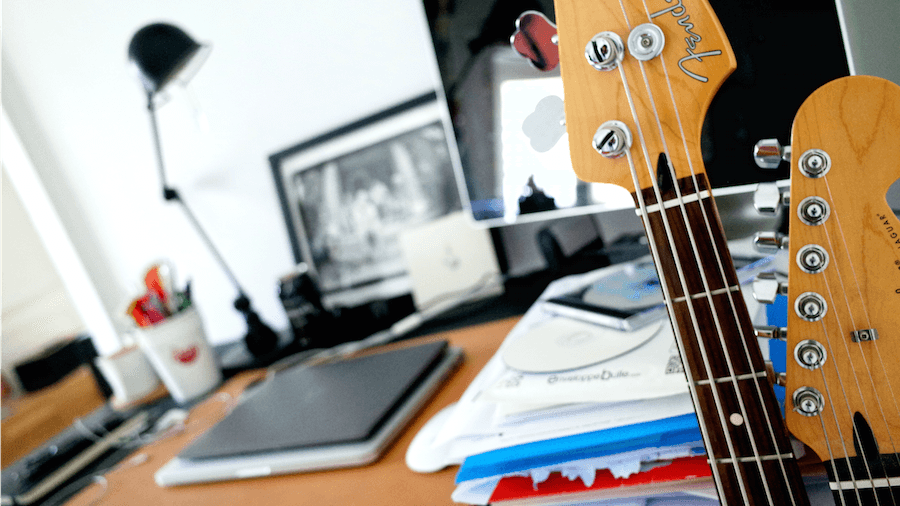
You work from home, what does that mean in terms of organisation?
When I’m not travelling to Paris, I work from home. I spend about a third of my time in Paris, and those days I have to organise my schedule differently. However, when I’m in Lyon, I wake up based on what I have planned for the day, and more importantly, what I did the night before. Even relating to Headz, if I’m working on some music, and I have to write a track for a brand, I can’t work during the day. So I work in the evening and night. Working on music during the daytime is contradictory. If it’s a more standard day, I’ll get up between 8:00 and 8:30. Also, I have to have breakfast before I shower.
What do you have for breakfast?
Whatever I can find. I don’t have a routine or regular breakfast menu. It can be sweet or savoury. I’m from the Franche-Comté region, I was brought up on cheese with bread and a hot chocolate in the morning. After my breakfast, I hit the shower.
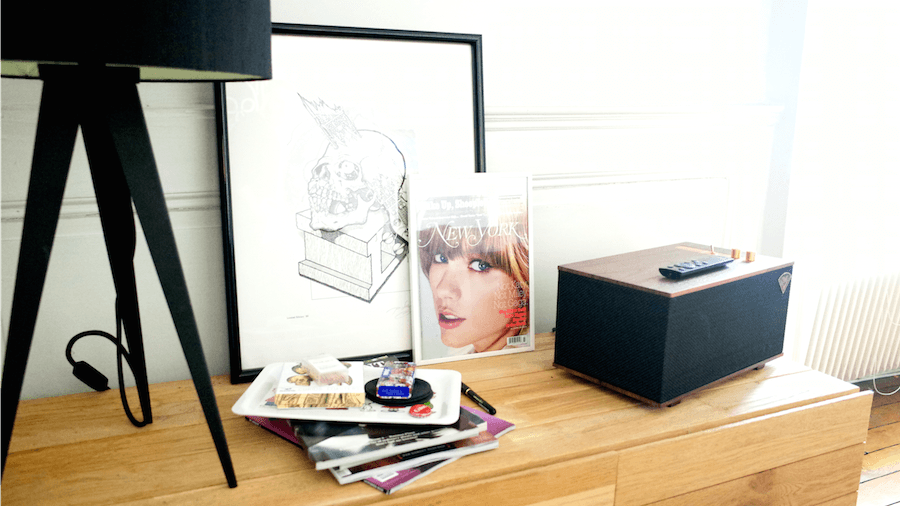
Is there anything you pay particular attention to in your grooming routine?
Because of my hair-related excesses during the Vegastar period of my life, I damaged my hair quite badly. I use a Baxter of California shampoo to invigorate my hair and scalp, or gentle and detergent-free pharmacy shampoos. If it’s a bad hair day, I’ll use Baxter of California’s Hard Cream pomade to style my hair. If it’s a good day I use Sachajuan’s hair wax. Then I’ll moisturise with the Horace balancing face moisturiser. I used to take my girlfriend’s creams and empty her lotions, and that was a bad habit I was happy to get out of. Once I’m ready I start working.
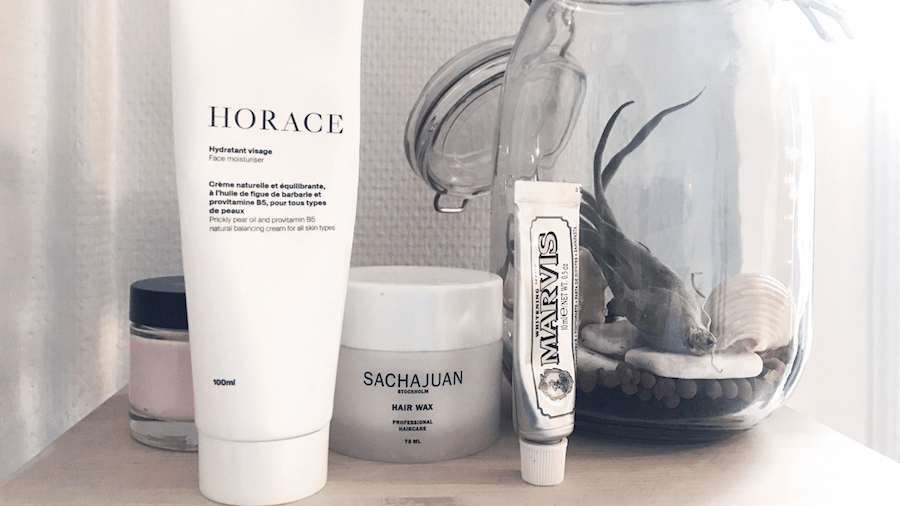
Does having to switch from Headz to The Videos make life complicated?
My main activity is Headz, and I try not to let my band-related activities take over my work time. However, I’m still lucky enough to be able to organise my daily schedule as I prefer. If I have a concert in the middle of the week, I’ll book all my meetings around the concert. I have been in some fairly bizarre situations, where I would have to rehearse for a concert and then head out to a client presentation. So I’d play punk rock for 2 hours in a concert venue, and then present a detailed PowerPoint deck on big data to a client. Fun times.
One last thing. You’re a teetotaller. What’s touring with a rock band like when you’re always sober?
Well, you get to see everyone else drunk, so I end up having all the fun stories about everybody else. Should we one day write a book, I’d be able to tell plenty of anecdotes most of my bandmates probably don’t remember. As I’ve never drank, I couldn’t really tell you which is better. I can tell you being drunk isn’t necessarily required to destroy a hotel room, though. It’s as much fun when you’re sober (laughs).
Interview : Martin Lacroix
Photos : Boris Laplante